Whether in the executive branch or in Congress, the Revolving Door Project believes that political leaders need to think more creatively and energetically about how they can leverage the full range of their powers to advance the public interest. Over the last several years, this motivating principle has led us to dedicate significant time and energy to convincing the House Democratic majority of the need for congressional oversight that spotlights executive branch corruption and corporate wrongdoing. In the context of the Trump administration’s lawlessness and beyond, congressional oversight is a powerful — indeed essential — tool to uncover governmental and corporate abuse, enforce checks and balances, channel governmental resources towards issues of widespread public concern, and galvanize long-lasting political support. We at the Revolving Door Project believe that Congress must exploit this potential.
Through op-eds, blog posts, letters, and interviews, we have sought to encourage congressional oversight at practically every turn. In all of that work — from pushing Rep. Richard Neal to request Trump’s tax returns and arguing in favor of impeachment to advocating aggressive pandemic-related oversight and meaningful investigation of the damage Trump caused to governing institutions and the civil service– our case has rested on a set of core observations:
Good Policy
Oversight has long been considered an essential component of congressional power and for good reason. In order to craft laws and continually institute necessary reforms, lawmakers need access to a wealth of information about the problems for which they seek solutions. Oversight also functions as a mechanism by which to enforce congressional will; investigatory powers help Congress to ensure that the laws it has written and passed are being carried out as intended.
Where voluntary compliance is not forthcoming, Congress has a variety of legal powers to ensure that it has access to the information it needs. Together with its considerable reputational and convening authority, these powers make Congress one of the most powerful fact finding institutions in the country. We at Revolving Door Project have consistently encouraged lawmakers to make use of this exceptional power to surface otherwise out of reach information about the Trump administration’s actions and corporate America’s behavior. Despite this administration’s unprecedented obstructionism, Congress nonetheless has the ability to obtain great swaths of information that are unavailable to almost any other party.
Even when investigations do not lead directly to legislative action in the near-term, they may still produce clear real world results. It is not uncommon for both public and private sector officials to resign following appearances at particularly humiliating congressional hearings. Further, the very knowledge that Congress is investigating may discourage lawbreaking in the public and private sectors alike.
Good Politics
For those lawmakers unconvinced by these benefits, there is at least one other reason to engage in aggressive, populist oversight: it’s great politics. As money floods our political system and even more overt forms of governmental and corporate corruption abound, many have lost faith that anyone in government has their interests at heart. Oversight that holds powerful actors — like practically any of this administration’s senior officials, BigTech, for-profit colleges, Wall Street, and on and on — to account for their transgressions can help to reverse the tide of cynicism by demonstrating that the government can work in the public interest.
It is also a particularly powerful tool in the face of a presidential administration like Donald Trump’s. While Trump utterly failed at the task of being president, he successfully commanded the conversation over his four years in office. By inundating the public with erratic statements and alarming, often violent actions, Trump made it difficult to keep up or to make sense of what was happening. Oversight, however, could have helped lawmakers to organize these chaotic elements into a single, commanding narrative: in this case, that Trump worked from his first day in office to enrich friends and benefactors while contemptuously stomping on everyone else.
Oversight in Trump’s Wake
Although Trump’s time in office has come to an end, there is an enduring need for oversight to uncover the full extent of the damage he caused. Although Trump waged many of his wars in public, lawmakers cannot ignore the possibility that other attacks were being carried out more quietly behind the scenes. Whether in the form of politicized hiring processes, corruptly awarded contracts, office reorganizations, or any number of other moves, left unaddressed this variety of attack could interfere with effective governance for years to come.
For that reason, it will be essential that lawmakers resist the urge to simply move on from what has just occurred under Trump. Only by developing a comprehensive accounting of his administration’s abuses will it be possible to reverse them and ensure that they are not repeated. And for every Republican who cries that it is “politics” to identify new ways in which Trump’s corruption and incompetence weakened our country — if the facts have a political bias and the outcome is to punish a political party for its leader’s misdeeds, well, isn’t accountability what it is needed to make democracy work?
And if this means that the Biden Administration is on its toes to avoid repeating the post-presidency recriminations Trump is owed — that would be a nonpartisan good thing!
Below you will find some of the project’s writing and research on congressional oversight. For a selection of quotes and interviews on the topic, please visit this page.
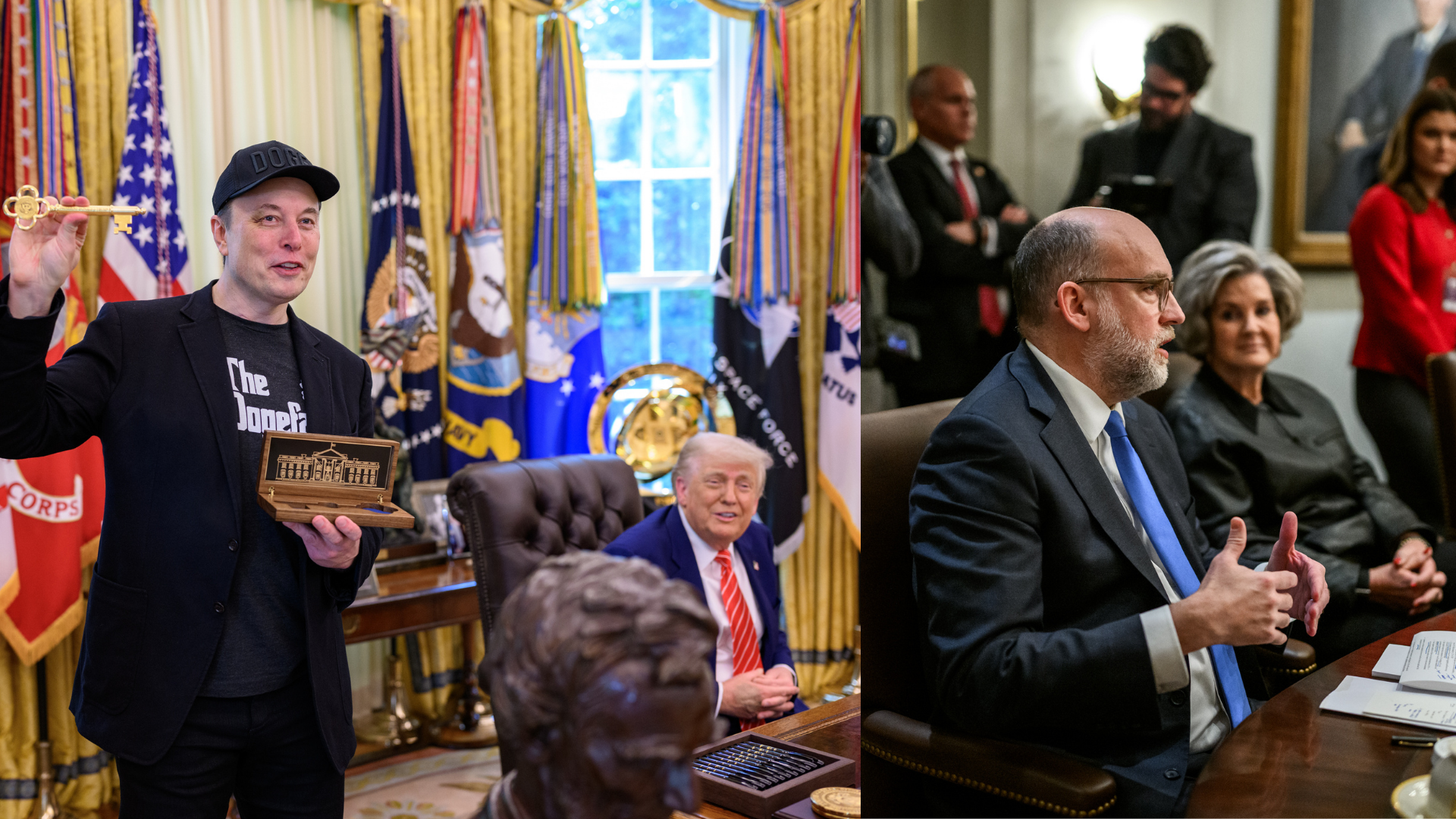
February 05, 2026 | The American Prospect
Kenny Stancil Julian Scoffield Chris Lewis
Op-Ed Congressional OversightDOGEElon MuskExecutive BranchGovernanceTrump 2.0
DOGE Lives On Through Russell Vought
Trump’s White House OMB director has quietly institutionalized the government demolition agenda set in motion by Elon Musk’s wrecking crew.

January 14, 2026 | Watchdog Weekly
Newsletter 2026 ElectionCongressional OversightCorporate CrackdownEconomic PolicyEthics in GovernmentRevolving Door
Now Is The Time For Fighters
On Monday, Senator Elizabeth Warren gave a speech at the National Press Club about how Democrats can rebuild durable trust with voters, win elections, and enact systemic change. She spoke with energy about how Democrats cannot win back a lasting majority by watering down their economic vision, and how candidates in future elections must “credibly demonstrate that they will take on a rigged system in order to fix it.” In other words, she called for the members of her party to refashion themselves as willing fighters.
January 08, 2026
Letter to House Democratic Leader Jeffries on New AI Commission
Revolving Door Project and eleven other organizations sent a letter expressing concern to House Democratic Leader Jeffries with regard to his selection of co-chairs with ties to Big Tech for the new House Democratic Commission on AI and the Innovation Economy.
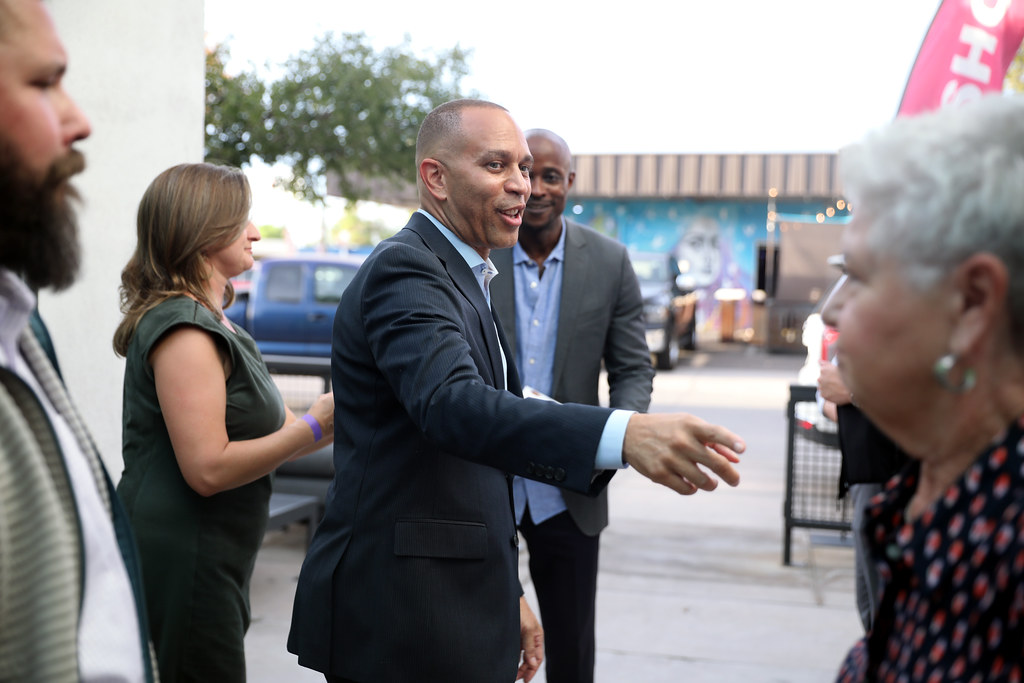
December 23, 2025 | The American Prospect
House Democrats Squander the Opportunity of Trumpian Corruption
Democrats have a golden opportunity to be the anti-corruption party, but the House caucus is not seizing it.
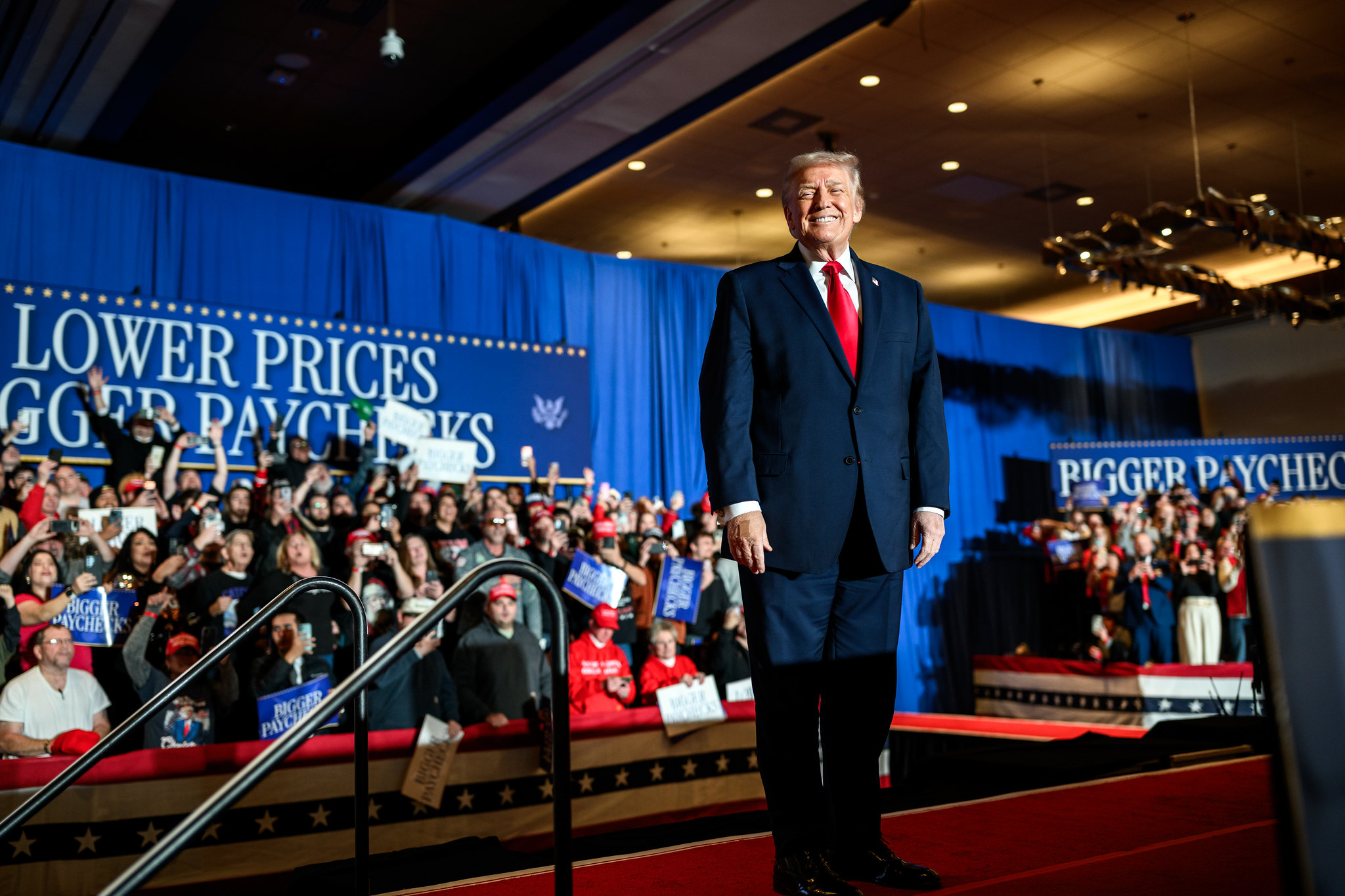
December 19, 2025 | Watchdog Weekly
Today: Renaming the Kennedy Center. Tomorrow: Renaming The Moon
Corruption Calendar Week 47-48: Trump’s giveaways to corporations continue to pile on as Americans suffer from an affordability crisis.
December 05, 2025 | Watchdog Weekly
Artificial IntelligenceClimate and EnvironmentCongressional OversightCorruption CalendarRevolving Door
Corruption Calendar Week 46: Whose Life is Precious?
It’s a cruel irony that the presumed technology of our future is forcing us to go back in time and prop up coal power generation. It’s even more unconscionable that so many people will be stricken by illness and death as a result.
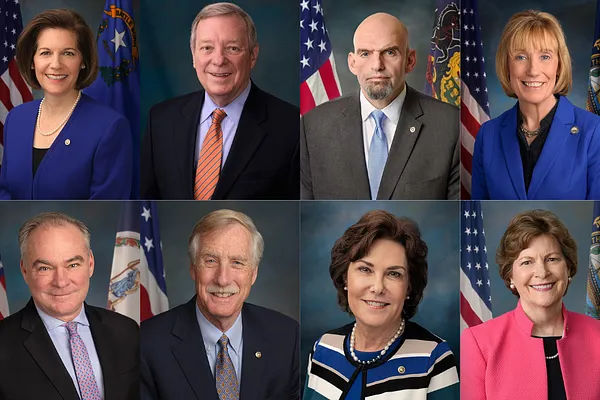
November 13, 2025 | Watchdog Weekly
8 Ways Senate Dems Should Have Been Holding the Line With Oversight
Here’s a congressional oversight target for each of the eight Senate Democrat that caved to end the government shutdown.

October 31, 2025 | Watchdog Weekly
Corruption Calendar Weeks 40-41: Belle of the Ballroom
Crypto interests and White House ballroom donors are the biggest beneficiaries of the administration’s latest rounds of corruption.
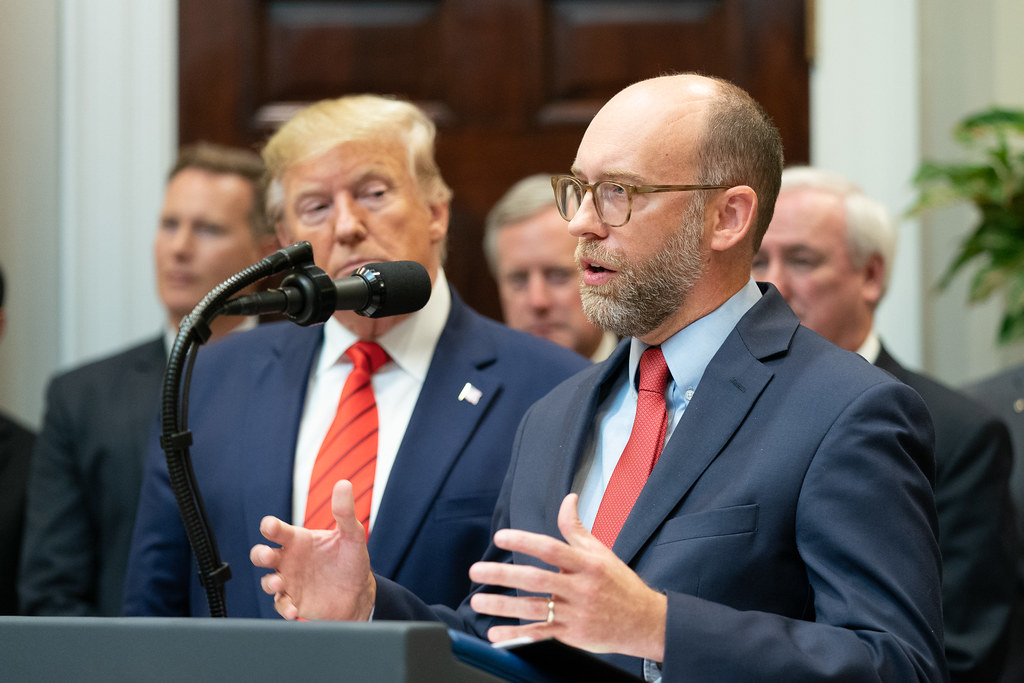
October 03, 2025 | Watchdog Weekly
Corruption Calendar Weeks 36-37: Put an End to the Vought Show
Russell Vought has systematically orchestrated a shutdown of critical government services as budget chief. It’s time to end that.

August 20, 2025 | Revolving Door Project Newsletter
During Back to School, Send Team Trump to the Principal’s Office
Trump’s enablers must pay a political price for increased costs of back-to-school essentials, cuts to public education, and embracing child-endangering AI.

August 11, 2025
The Democrats Were Designed For An America That No Longer Exists
If the Democratic Party, and the country, want to survive, they need to wake up and choose what they want the next world to look like. Then they need to start fighting for it.

July 18, 2025 | Watchdog Weekly
Corruption Calendar Week 26: Crypto Week Marks Washington’s Insatiable Appetite For Grift
While the House of Representatives was busy passing three industry-written pieces of legislation which all but ensure crypto’s complete capture of the federal government, Trump netted close to $100 million from sales of his crypto memecoin. There’s no doubt that the favor machine will keep whirring as long as the zeroes keep adding up for Trump and his family.

July 03, 2025 | Revolving Door Project Newsletter
Want a Big Tent? Use Congressional Oversight
Ahead of the 4th of July holiday weekend, Republicans are trying to ram through their One Big Beautiful Bill Act, which includes enough horrors to dampen any parade. As written, the bill will do untold harm to Americans across the country through devastating cuts to Medicaid, food assistance, and student loan forgiveness. Working people will suffer, but the Republican’s bill will be a boon for the wealthy, fossil fuel interests, and draconian immigration detention centers. Democrats will not be able to stop the destruction, but they can use every available tool to make sure the public knows who is to blame.

May 07, 2025
Revolving Door Project Executive Director Testifies About Trump Family Crypto Corruption
RDP Executive Director Jeff Hauser testified about the Trump family’s use of cryptocurrency as a vehicle for blatant corruption
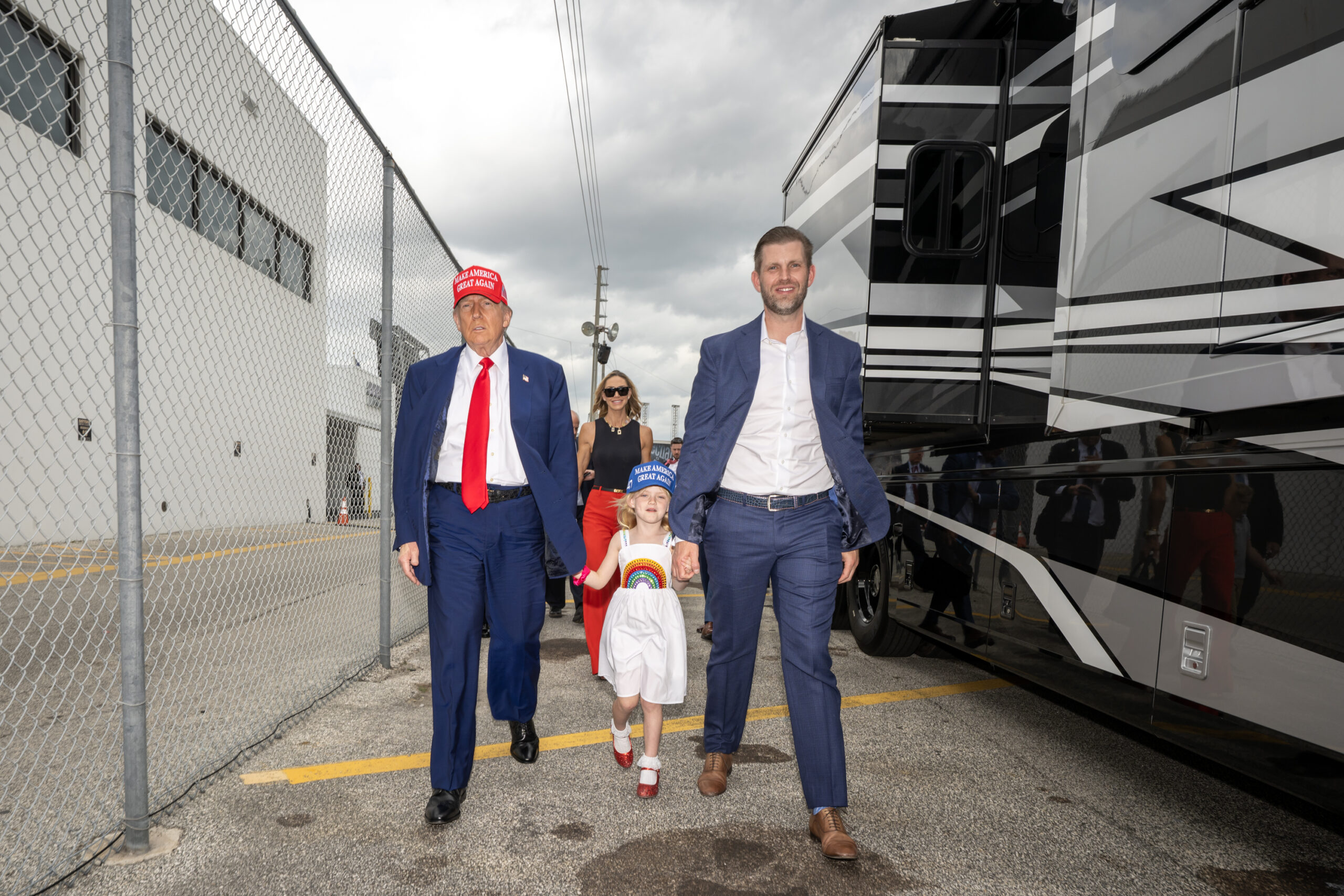
May 02, 2025 | Watchdog Weekly
Newsletter Climate and EnvironmentCongressional OversightConsumer ProtectionCorruption CalendarDOGEElon MuskEthics in GovernmentTech
Corruption Calendar Week 15: Trump, Binance and MGX—A Crooked Match Made In Dubai.
This week, the Trump family continued to blur the line between politics and business with Trump 2028 merch and a billion dollar deal with Binance and MGX. Trump Jr. and Eric Trump’s potential stock sales and a new elite Washington club further expose this convergence. President Trump’s pardons of allies, Elon Musk’s apparent sway over personnel picks, and the rollback of consumer and coal miner protections add to the ethical concerns.
